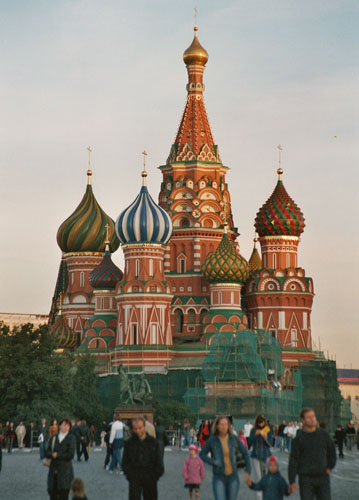Wie auf Interfax zulesen ist
Interfax is Russia's equivalent of the Associated Press. It's as reliable as any news source.
der Artikel:
Moscow, April 21, Interfax – On the initiative of the Surgut Transport Prosecutor's Office, materials by scientology founder Ron Hubbard were recognized as extremist and banned in Russia, the Prosecutor General's Office reports.
In compliance with the legislation, they will be included in the Russian federal list of the extremist materials.
The Surgut Transport Prosecutor's Office and the Khanty-Mansiysk customs held a joint check to find out that various recipients in Surgut received international mail deliveries from the USA with literature, audio and video disks on scientology (by Ron Hubbard.)
The informational materials were confiscated and sent to the religious expert council at the Khanty-Mansiysk governor for examination where experts in psychiatry, psychology and sociology concluded that the materials should be prevented from spreading "as they undermine traditional spiritual life basis of citizens in the Russian Federation."
The Surgut Transport Prosecutor's Office applied to the court to recognize confiscated materials as extremist.
On the results of the conducted psycholinguistic expertise it was recognized that the materials "contain evident and concealed appeals to social and religious discord, to promotion of exclusiveness, superiority or deficiency of a person on grounds of his or her social and religious affiliation and attitude to religion, urges to impede legal activities of the state bodies including judicial and law enforcement agencies, to commit crimes motivated by ideological and religious hatred."
deswegen haben wir mal nachgefragt bei
DailyTelegraph.com.au

Artikel
Russia bans books by Scientology founder L. Ron Hubbard
RUSSIA is set to ban dozens of texts and recordings by Scientology founder L. Ron Hubbard.
"Materials on Scientology by Ron Hubbard have been found extremist and will be banned from distribution in Russia," the Russian prosecutor general's office said in a statement.
The ban relates to 28 books and audio-video discs containing lectures by Hubbard, a US science fiction author who founded Scientology in 1954.
The ruling was the latest blow to the Church of Scientology, an organisation that some countries treat as a legitimate faith but that others consider a cult designed to trick members out of large sums of money.
The ban on the Scientology materials was imposed by a court in the city of Surgut in eastern Siberia, which decided they should be added to a list of literature banned in Russia for extremist content, the statement said.
Start of sidebar. Skip to end of sidebar.
End of sidebar. Return to start of sidebar.
The list of extremist literature includes numerous texts by Islamist groups and Russian ultranationalists, as well as some brochures distributed by Jehovah's Witnesses.
Local prosecutors in Surgut confiscated the Scientology materials after they were mailed there from the United States.
The materials contained calls "to commit crimes motivated by ideological and religious hatred" and "ideas justifying violence in general and in particular any methods of resistance against critics of Scientology," it said.
"This is some kind of mistake or misunderstanding," said Yury Maksimov, a spokesman for the Church of Scientology in Moscow. "The materials cited are distributed all over the world."
The Church of Scientology, which says it is seeking a world free of "war, crime and insanity" and counts Hollywood stars Tom Cruise and John Travolta among its members, won the status of a religion in the US in 1993.
But it is regarded with suspicion in many European countries, including France, Germany, Belgium and Greece, where opponents accuse it of manipulating members for financial ends.
It has repeatedly encountered problems with Russian officials. Russia has twice been fined by the European Court of Human Rights for refusing to register Scientology churches as religious organisations.
Mehr Hintergründe hier










Kommentar veröffentlichen